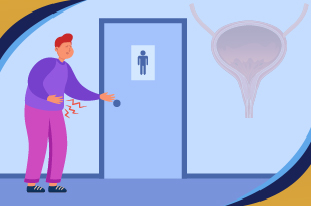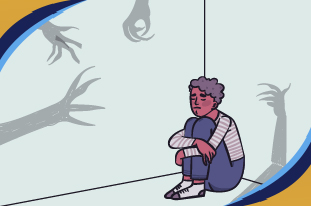Men’s mental health is as often needed as other health issues, with many men suffering in silence despite growing awareness.
More than one in four men experience a mental health disorder in their lifetime.
Societies are discussing mental health more now than ever before. People are becoming more open about their mental health, which is a positive point. We are all learning better ways to support each other morally and emotionally.
Although men and women both face the same challenges mentally, men are less likely to seek professional help for multiple reasons. This point highlights to observe the men’s Mental Health Awareness Month to bring attention.
Note: It is to be remembered that not every country observes June as Mental Health Awareness Month. The United Kingdom observes this month in November as Movember.
The Impact of Traditional Masculine Norms
Unhealthy traditional masculine norms, which emphasize dominance, strength, and stoicism, significantly impact men’s lives.
There are phrases for men, back up, toughen up, and be strong, which have been ingrained since childhood, and have limited the men’s ability to express emotions. This societal conditioning fosters fears of appearing weak, increases shame, and stigma.
This wall has limited the outflow of men’s emotions, which have been stored in their minds and have become a disease or disorder.
Sometimes, fear of shame, appearing weak, increases shame and stigma, which leads to self-isolation behaviors and low rates of seeking help.
There are studies that show that following these rules can increase psychological stress and decrease readiness to ask for help.
Some research shows that certain aspects of traditional masculinity, such as strong work ethics and resistance, can be used to promote resilience and coping strategies. However, this practice also highlights that these norms can still discourage emotional expression and promote harmful self-restraint.
Read More: Understanding The Connection Between Male Depression And Emotional Affairs
Common Mental Health Challenges For Men
Men face multiple mental health challenges and stressors. These issues can be heightened by isolation, stress, and societal pressure. Some of the most common challenges include,
- Anxiety
- Depression
- Anger and irritability
- Substance abuse disorder
- Work-related issues
- Attention deficit/hyperactivity Disorder (ADHD)
- Post-traumatic stress disorder
- Bipolar
- Personality disorder
- Behavioral addiction
- Eating disorders
- Obsessive-compulsive disorder
Anxiety
According to an estimate, nearly 14% of men in the USA experience anxiety at some point in their time and other. It can manifest as hypertension, worry, and paralyzing fear.
If these issues are left untreated, it can make it difficult to maintain relationships.
Men are less likely to seek treatment and be diagnosed with anxiety, which can become debilitating if left untreated.
Depression
About 9% of men experience a major depressive episode in a year. Symptoms in men can be different from women and can be intense.
These include irritability, physical pain, aggression, risk-taking, and substance abuse.
When these symptoms are left untreated, they can lead to risk factors like suicide. Over 30% of men experience depression, but many never seek help due to different symptoms, presentation, and stigma.
Suicide In Men
Men are more likely to attempt suicide, like about 7 out of 10 suicides globally. In Canada, the USA, and the UK, suicide is the first or second leading cause of death for men under 50 years age.
In Australia, over 75% of suicide deaths occur and cause men deaths. Most importantly, they use drugs or other methods to reduce their mental health, which further exacerbates their mental health and leads them to suicide.
Overlapping stressors
Other than just specific mental health issues, there are several stressors that can contribute to reducing men’s mental health. These include:
- Lack of purpose and meaning in life.
- Loneliness.
- Relationship problems with romantic partners.
- Difficulties at work.
- Financial issues.
- Fatherhood and parental pressure.
- Sexual health and dysfunction.
- Bullying in the workplace or educational institute.
- Retirement.
- Other health issues, etc.
Read More: How to Help Someone With Bipolar Disorder?

Barriers To Seeking Help
Nearly a third of men (30%) in the UK say they don’t know where to go for advice on their mental health issues. The stigma can be counted on to ensure that they can express their feelings.
Many men who are often influenced by the “man up” mentality struggle to express emotions and are reluctant to seek professional help. This reluctance comes from:
Stigma And Shame
Men often think that taking help is a sign of weakness. They sometimes feel shameful, fear of judgment from peers, family, and society.
Lack Of Recognition Of Symptoms
Men may not recognize depression behavior symptoms beyond sadness; often, they show as irritability, physical pain, or escapist behavior.
Preference for Self-Reliance
A large number of men prefer to deal with these feelings on their own.
Privacy Concerns
16% of men are concerned about their privacy, and this is the major barrier to men’s mental health awareness and conversation. Men often prefer to hide their mental health issues from their partners and friends.
Read More: Trauma Brain Vs Normal Brain: How Trauma Affects The Way We Live
Importance Of Seeking Professional Help
Mental well-being creates a positive transformation in men, families, friends, and communities, and can lead to heightened professional workplace productivity. This reduces aggressive behavior.
Breaking the silence that surrounds men’s mental health needs open discussion, compassion, and commitment.
Workplace support
Organizations can be role-played by asking about their male employees’ stress issues and helping them with their management. They can provide resources to identify signs of depression and create a safe space for them.
Professional Help
They must realize that seeking professional help, such as therapy and counselling, is needed. This is a sign of strength, not weakness. Therapy can reduce stress and feelings of isolation and improve their psychological well-being.
Gender Sensitive Care
Healthcare providers need better training and empathy to address the different symptoms and societal issues that men experience. The care should be culturally sensitive and tailored to men’s preferences and needs.
Government Strategies
Governments should have a critical role in confronting these challenges through national health strategies. They can normalize conversations, improve access to support, and address underlying issues like financial distress and relationship breakdown.
Read More: Coping Mechanisms For Depression: Practical Strategies To Help You Navigate
Men’s Mental Health Awareness Months
Men’s mental health month is celebrated to address all the above issues and make an awareness campaign where men can understand the importance of mental health.
This month is celebrated in June, but somewhere in the world, like in the UK, it is celebrated in November.
This month was first observed in 1994, after the passage of Senate Joint Resolution to address disparities in men/s health outcomes and advocate for improved health education and awareness among men.
There is some confusion and debate regarding Men’s Mental Health Awareness Month.
June
June is men’s mental health month. It has been officially recognized in June in the USA since June 1994. The rule was passed by Congress after being introduced by Kansas Senator Bob Dole.
November (Movember)
In the UK and some other parts of the world, Men’s Mental Health Awareness Month is observed in November. Movember is also known for raising awareness of prostate cancer, testicular cancer, and suicide rates. So, the month is declared for men’s overall health.
The fact that June is also widely recognized as Pride Month. This has led to discussions and frustrations, especially within the men’s rights community, as they are being overshadowed.
Some argue that Pride Month is the celebration month of the Stonewall Riots of June 1969. Others argue that Men’s Mental Health Month was established earlier as a recognized month.
However, some express their concern that corporate support and public attention for Pride Month far outweigh men’s mental health.
Read More: A Guide To Understand Smiling Depression
Support Is Available
However, there is always support available for men and women. We at Orange Coast Psychiatry appreciate mental health support and give guidance. We listen carefully to each and every patient’s problem and give them solutions. There is also a plus point, and that we take care of privacy. You can easily share every problem without worrying about its disclosure. Our telepsychiatric support is also available for immediate help from the premises of your home or office. Call now and book an appointment with our professional psychiatrists.
























